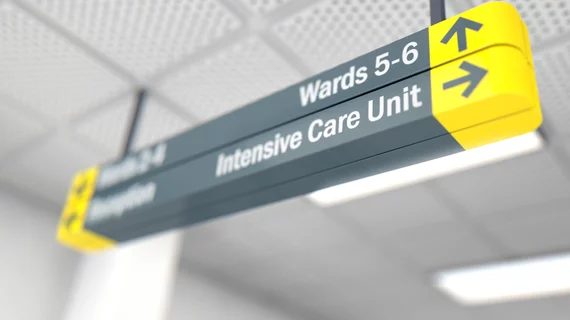Serious patient safety events up 19% in 2022
A new report from the Joint Commission has laid bare a dramatic increase in sentinel events, up 19% in 2022 compared to the previous year, with the majority happening in hospital settings.
A sentinel event is a patient safety event that results in death, permanent harm or severe temporary harm, according to the Joint Commission, which noted there were 1,441 sentinel events in 2022. Most of these events––1,299, or 90%––were self reported. The remaining number of events were reported either by patients or their families, or current or former employees of the organization. The Joint Commission analyzes sentinel events each year, including the causes and outcomes, to help the nation and specific organizations gain insight into preventing harm to individuals in their care.
As has been true with previous years, falls were the No. 1 cause for sentinel events, accounting for 42% of all adverse events last year. That was followed by delay in treatment (6%), unintended retention of foreign object (6%), wrong surgery (6%) and suicide (5%).
Of the reported sentinel events, 20% resulted in patient death, the report found. Another 44% had the outcome of severe temporary harm, and 13% required unexpected additional care or extended stay, such as treatments or procedures after the event. When the Joint Commission looked at the root cause of sentinel events, communication breakdowns were the top factor contributing to these events. Communication breakdowns included “not establishing a shared understanding or mental model across care team members, or no or inadequate staff-to-staff communication of critical information,” the Joint Commission said.
Most of the incidents were self reported, meaning the Joint Commission would not make conclusions on the timing and frequency of the sentinel events. The data was received by the Joint Commission Office of Quality and Patient Safety from Jan. 1, 2022 through Dec. 31, 2022. A patient safety specialist with the Joint Commission reviewed every comprehensive systematic analysis with the healthcare organization to discuss underlying causes and strategies to improve.
The vast majority––88%––of sentinel events happened in hospitals.
Os the sentinel events resulting in death, most were commonly associated with patient suicide (24%), delays in treatment (21%) and patient falls (11%). Patient falls were most likely to result in severe temporary harm (62%). With patient falls being the highest cause of events, reported “contributors to falls included policies not being followed (e.g., fall risk assessment), inadequate staff-to-staff communication during handoffs or transitions of care, and lack of shared understanding or mental model regarding plan of care.”
Overall, the 19% increase in sentinel events in 2022 was led by a 27% increase in patient falls.

